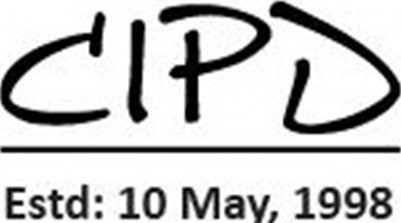This project is an action research project. It searches for an alternative approach to development for the CHT region. It intends to see a self-managed, self-reliant and self governed development process takes place at grassroots (village) level for learning and replication. Here, Participatory Action Research (PAR) and Participatory Strategic Planning (PSP) methods are being used as a means to achieve that process.
The alternative approach is named as ‘adivasi development’. Here, the word ‘adivasi’ is used to mean more in terms of values rather of physical or biological adivasi.
Duration:
Phase 1: September 2006-June 2008
Phase 2: July 2008-June 2011
Phase 3: July 2011-June 2014
Phase 4: July 2014-June 2017
Location:
Khagrachari, Rangamati and Bandarban Sadar Upazillas of three hill districts
Donor: EED, Germany
Development Goal is to achieve a prosperous, self-reliant, self governed and just society where the Adivasi people can live with peace ad dignity.
Project Objectives:
The project objectives of the present phase are:
- To achieve a model for Adivasi Development in 40 villages (indigenous community) based on indigenous knowledge by implementing PAR (reflecting on indigenous knowledge on local self governance and natural resource management) and PSP (plan their own societal vision and development actions), so that a self-managed, self-reliant and self governed indigenous development process take place for learning and replication.
- To monitor the development initiatives in CHT and enhance the capacity of the social workers of MNGOs so that they will be well equipped to address the complex development challenges in a coordinated and comprehensive manner.
- To lobby and advocacy for a culturally sensitive, environmentally sound and people centered development approach to all development actors within CHT region.
Achievements and learning in Phase 1:
Achievements
- A large group of facilitators are working as Core Facilitators in ongoing training activities
- Some of the trained facilitators have appointed by local organizations in senior and strategic positions
- A group of young resource persons are active and have potentials to be Indigenous think tank for Adivasi development
- Trained facilitators are gaining the capacities to take facilitative role for the people living in a conflict and oppressive situation
- Policy research on 4 subjects; environment, culture, education and dominant development activities (rubber plantation)
- Young educated persons are expressing their willingness to receive the training.
Learning
- Most of the trained core facilitator team members have joined in local NGOs in senior position. Therefore, the number has to be increased for PAR activities
- The team is facing new challenges in managing higher level programme and organization design, team building etc and need to further enhancing their capacities
- The continuation of capacity enhancement has to be couched and accompanied by expertise and experienced resource persons
- Local Level Facilitators are ready to take responsibility of PAR and PSP Activities.
- Process documentation and analysis has to be strengthened so that the organizational memory is preserved and continued
- Development of indigenous facilitators proved very strategic and effective for sustainability and value addition within the development field
- Use of indigenous and local knowledge on development is very important for visualizing adivasi development
Major Activities and Targets
A. Capacity Enhancement of Social Workers
- Training of Facilitators (ToF) for social workers (10 Trainings, 7 days each)) on Poverty Analysis, Development Understanding, Development Management, PAR, PSP, Culture and Development, Environment and Natural Resources Management, Facilitation Skill, Gender.
- Advanced Course for Core facilitators (8 subjects, 7 days each)) on Advocacy Work; Research methodology & Online Research; Project Management; Environmental Impact Assessment (EIA); Indigenous Identity & Rights; Masculinity and Gender; People’s Organization; Development Understanding
- Study visit within country 2 (two) visits
- Facilitators Conference (1 Conferences)
B. PAR on Adivasi Development (in 30 villages)
- Village Resource Persons (VRP) training 30 Trainings on (5 subjects, 5 days each) Development Management, Development Understanding, Natural Resources Management, Gender Equality, Culture
- Preparatory meeting with VRP for PAR Activities (6 meetings)
- PAR Activities with communities (30 structured workshops, 5 days each)
- PSP exercise (30 structured workshops, 5 days each)
- Workshop on sharing PSP documents (1 workshop, 3 days each)
- Evaluation of PSP ( 1 workshop 30 participants for 5 days)
C. Policy Research and Publication
- Database creation and maintenance
- Documentation of PSP exercises and learning at community level
- Research on policy issues (3 research reports)
- Publication –communication material; Annual Report; Booklet etc.
- Workshop/ Seminar on research results (3 workshops/seminars)
- Web site maintenance
D. Monitoring and Coordination of Development Interventions in CHT
- Dialogue, meeting and workshop on Development (24 meetings/workshops)
E. Advocacy for local capacity for peace
- Workshop/training on local capacity for peace (9 workshops/training)
A. Policy Research
- Policy research on Environment, Culture and Socio-economic (3 Researches)
- Seminar and workshops on Research Results (2 Workshops)
B. Capacity Enhancement of Social Workers, Community Leaders and People
- TOF for Core Facilitator Team (9 Trainings, 7 Days each) on Poverty Analysis, Development Concepts & Strategies, Development Management, Gender & Development, Environment and Natural Resource Management (land, water, forest), PAR, PSP Concept & Method, Facilitation concept and method, Culture and Knowledge.
- Preparation of modules/manuals relevant to CHT context (8 Modules, 5 Days each)
- TOF for Local Level Facilitators (8 Trainings, 5 days each) on Poverty Analysis, Development Concepts & Strategies, Development Management, Gender & Development, PAR, PSP concept & method, Facilitation concept and method, Culture and Development.
